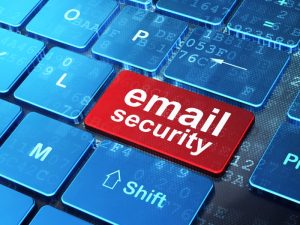Cybersecurity is now critical for operators in every sector. Protecting IP and confidential email communications is of the highest priority, regardless of a firm’s area of expertise. Compromised emails can have serious consequences that impact both an enterprise and its clients.
As with other businesses, email has risen to become the most commonly adopted channel for legal professionals to exchange information with their clients. While email encryption is the best way to protect a firm in any industry and those it serves, it is vital for lawyers.
Understanding email encryption
Prone to information disclosure, emails require protection to remain private. Most email messages are encrypted in transmission using Transport Layer Security (TLS). However, they are then stored in a plain text format, rendering them vulnerable. Without end-to-end encryption, emails are vulnerable to hackers or accidental exposure, as their content is readable by other individuals, beyond their intended recipients.
As a result, email encryption is crucial for the legal industry. Lawyers are bound by an ethical duty to protect their client’s information from being exposed to unauthorised access.
End-to-end email encryption helps safeguard sensitive data handled by a law firm but is also critical to regulations and compliance. Consequently, protecting their client’s personal data and keeping communications secure can also safeguard a lawyer’s legal practice.
Improved security
Data breaches can be crippling incidents for law firms. As well as sensitive staff data, legal services must protect their client records and any documents related to both complete and ongoing cases.
Fortunately, email encryption offers a layer of security for all emails received at a legal firm. Email encryption makes it harder for hackers to access correspondence, making private information less vulnerable to exposure or attack. Emails secured with end-to-end encryption are stored on mail servers, and company accounts in an encrypted format. Accessing them requires a specific decryption key.
All confidential data should stay encrypted, whether it is being stored or in transit. Failing to safeguard sensitive information can result in significant repercussions and even damage the reputation of a firm.
Compliance with regulations
Legal professionals encounter a wide range of different regulations throughout their careers. However, rules, legislation and regulations are constantly updating. This can complicate compliance by continuously moving the margins in which firms operate.
Depending on the area a firm specialises in, it might need to encrypt a diverse selection of specific information. For instance, law firms often need encryption when handling personally identifiable information (PII), among other types of sensitive data. Email encryption can help law firms to remain compliant with various regulations. As new rules are implemented, encryption solutions are revised to reflect changes, keeping companies current and free from any chance of infraction.
Although some regulations might not explicitly demand the use of encryption, they require firms to protect specific types of data. Fortunately, email encryption always ensures that firms exceed the accepted minimum for security requirements. This can potentially keep companies covered for future regulations and incremental updates. Best practices suggest that email encryption is adopted alongside other security measures as an essential element of a legal firm’s total security plan.
Protecting client data
Lawyers typically deal with high volumes of emails. Often, exchanges over email will include multiple conversations conducted between clients and partners, along with other entities and organisations involved in an ongoing case. When multiplied by the number of cases that each lawyer and the practice are often dealing with, it is not difficult to see how a lawyer’s inbox can soon become flooded.
When dealing with such volume, confidentiality and security can present a challenge. End-to-end email encryption solves this problem effectively by making sure that all client data that is sent from or to a law firm remains protected by default. Encryption helps to maintain the privacy of sensitive information, stopping unauthorised access or unsanctioned use of the data, and ensuring that a client’s data stays secure and confidential.
Streamlined communications with advanced privacy
By employing email encryption, legal practices and their clients are ensured of total privacy. Encryption protects privacy by converting personal information into messages that can only be read by their designated recipient.
Encrypted emails demand authentication, so only an intended individual can ever read them. Email encryption also makes certain that any information sent is never visible to anyone else, guaranteeing complete confidentiality and privacy is maintained within the law firm and with any client communications.
Finally, email encryption can also streamline communications within a law firm, mitigating the need for any paper-based documents and facilitating more efficient sharing of confidential information.
End-to-end email encryption for legal firms
At Galaxkey, we offer cutting-edge email encryption that wraps your legal communications, as well as their attachments, in three robust layers of protection. Approved by the National Cyber Security Centre (NCSC), our solution can keep you compliant with the latest regulations. Call our team today and book your free 14-day trial.



